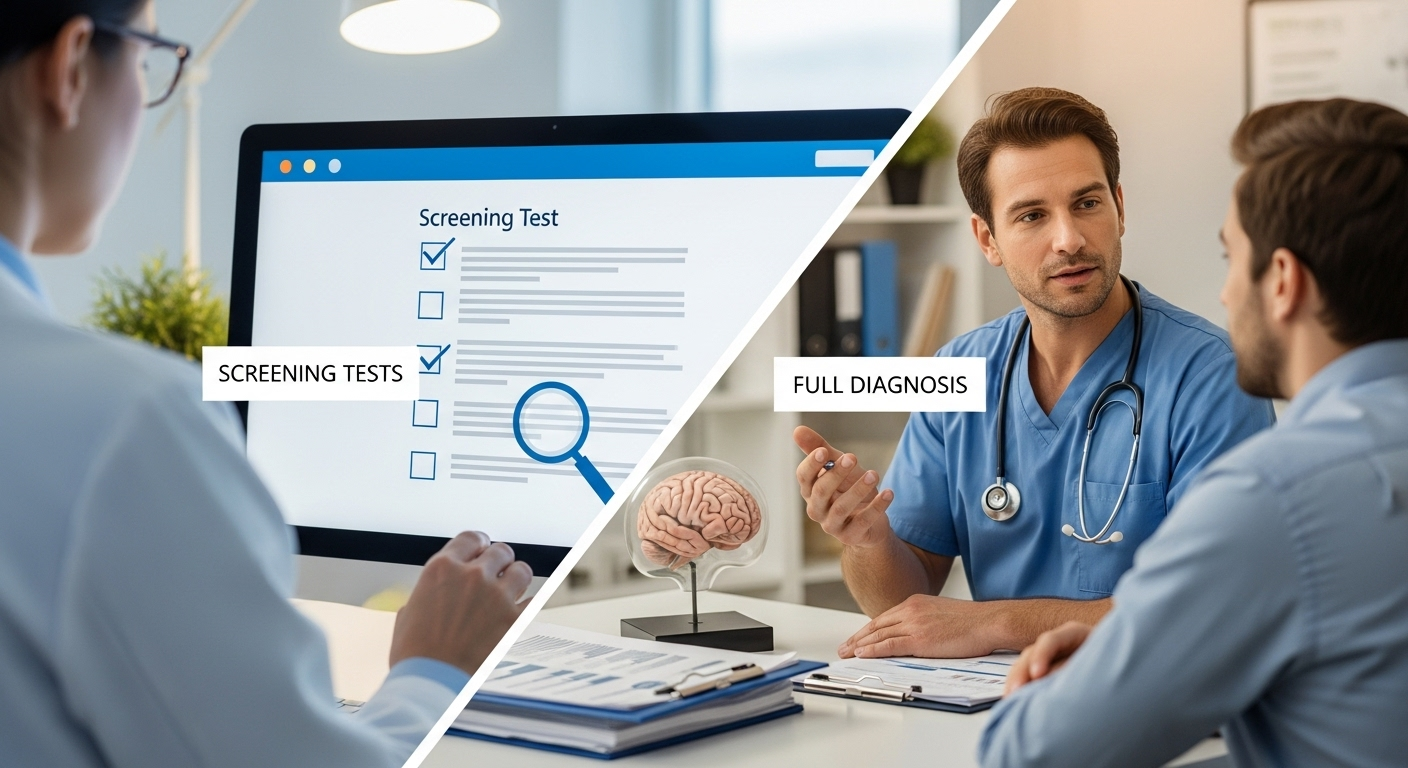When it comes to mental health, people often come across two common terms—screening test and full diagnosis. While both are important in identifying mental health conditions, they serve very different purposes. Understanding the difference can help you know what to expect if you are considering taking an online mental health test or planning to consult a professional.
In this blog, we will explore what a screening test is, what a full diagnosis means, and how they differ in terms of purpose, process, accuracy, and next steps.
A screening test is usually the first step in detecting possible signs of a mental health condition. These are often short questionnaires or checklists designed to identify whether someone may be experiencing symptoms of issues like depression, anxiety, ADHD, PTSD, or bipolar disorder.
An online depression screening might ask questions about your sleep, appetite, energy levels, and mood. Based on your answers, it may suggest that you could be experiencing depressive symptoms.
A full diagnosis is a detailed evaluation conducted by a licensed mental health professional such as a psychiatrist, psychologist, or clinical therapist. Unlike screening tests, a diagnosis is comprehensive and involves multiple steps to ensure accuracy.
If you show signs of depression in a screening test, a mental health professional may conduct several sessions, ask about your personal history, check for medical conditions, and use structured diagnostic tools before confirming depression.
| Aspect | Screening Test | Full Diagnosis |
|---|---|---|
| Purpose | To identify possible symptoms | To confirm or rule out a mental health condition |
| Who Conducts It | Self-administered or general health provider | Licensed mental health professional |
| Length | Usually 5–15 minutes | May take multiple sessions |
| Depth | Focuses on symptoms only | Considers medical history, family background, lifestyle, and more |
| Accuracy | Offers an indication but not 100% reliable | Provides a confirmed and official diagnosis |
| Outcome | Suggests whether further evaluation is needed | Leads to treatment options and care plan |

A screening test is a quick, accessible way to understand if you might have symptoms of a mental health condition. A full diagnosis, however, is essential for clarity, accuracy, and effective treatment. If you have taken an online screening and received concerning results, the next step should always be to seek professional help.
Mental health is complex, and while screenings can guide you, only a full diagnosis can provide the certainty needed to move forward with the right support.
Online mental health tests can be a reliable starting point for self-reflection and awareness, but they are not a substitute for professional care. Their value lies in helping people recognize when they may need to take the next step—seeking proper evaluation and support from a qualified professional.
If you are experiencing persistent symptoms of depression, anxiety, or any mental health concern, don’t rely solely on an online test. Use it as a guide, then reach out to a trusted mental health professional for a full assessment and support.

Take a Quick, Private Assessment to Check in With Your Mental Health.
Take Assessment